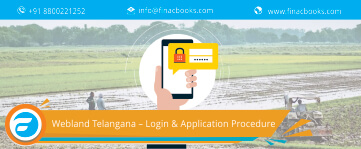Liaison Office
A liaison office; also referred and understood as a representative office or LO, is basically set up by the parent entity in order to understand and explore the business market and its environment and also to collect the information from potential customers and vendors. In other words, a liaison office is basically an intermediary and its domain should be restricted to only collecting information about the targeted market and to create awareness about the parent entity and its products to its potential customers and vendors and thus is not used for conducting actual business.

With the help of liaison office, it becomes easy for the foreign parent company to enter and explore the Indian market situation for its business growth. The reason why setting up a liaison office in India is quite a popular option amongst foreign entities and investors because apart from understanding and exploring the Indian market, it also gives them an opportunity to understand possible effect of India’s liberalizing caps on their business; also in comparison to other business structures, a liaison office allows the parent entity to keep their financial and administrative as well as legal commitments quite low.
Role of a liaison office is restricted and it can only undertake following activities in India:
- To represent the parent company or its group companies in India
- To promote import and export from or to India
- To promote all kind of technical and financial collaborations between the parent/group companies in India
- To provide the required communication channel between the Indian and foreign companies.
- Based on the research done by its liaison office, the parent company or the foreign entity decides whether to incorporate a subsidiary or not in India.
- It is easier to shut down or close a liaison office as compared to a Wholly Owned Subsidiary.
In order to set up a liaison office in India, foreign parent company has to obtain certain permissions and approvals from the Reserve Bank of India (RBI), if:
- The parent company is registered in Pakistan.
- The parent company is registered in Bangladesh, Sri Lanka, Afghanistan, Iran, China, Hong Kong or Macau and the location of liaison office is in Jammu and Kashmir, North East region, Andaman and Nicobar Islands.
- If the parent company deals in sectors such as Defence, Telecom, Private Security and Information & Broadcasting.
- If the application is from a NGO.
RBI is quite clear about the activities a liaison office cannot perform in India, such as:
Apart from listing down the activities which a liaison office can and cannot undertake in India, the Supreme Bank of India has listed down the salient features of a liaison office, such as:
Entry Routes to set up a Liaison Office in India by Foreign Entity
In order to set up a liaison office in India, foreign entity can take either of the below mentioned routes, i.e.
- Automatic Route: In case the activities of the parent company falls under 100% FDI sectors, then the foreign entity does not need to obtain approval from the Indian government and a direct application to the RBI is to be submitted.
- Approval Route: If the activities of the foreign parent company do not fall under 100% FDI sectors, then the parent company has to obtain permission from the government. In this case, the applications are considered by the RBI in consultation with the Ministry of Finance, Government of India. Applications from entities such as non-government organizations or non-profit organizations or government bodies are also considered under this category.
Eligibility for Liaison Office Registration in India
Foreign entity has to fulfill below mentioned criteria before qualifying for the establishment of a liaison office:
- It is mandatory for the parent office to have a 3 year record of profitable operations in its homeland;
- Its audited balance sheet must show the minimum net worth of US $50,000.
Process to Setting up Liaison Office in India by Foreign Entity
Setting up a liaison office in India is governed by the Foreign Exchange Management Act (FEMA), which is an act to consolidate and change the law pertaining to foreign exchange and facilitates external trade and payments and for promoting maintenance of foreign exchange market in the country. Under the act, the foreign parent company has to acquire specific approval from the Reserve Bank of India and the application for the same has to be forwarded only through the designated Authorised Dealer Category (AD). It is important to choose the authorized dealer category bank very wisely because you as in the parent company will be associated with it even after the liaison office is set up.
The application submitted by the foreign entity should be supported with the following documents
- Certificate of Incorporation/Registration or Memorandum and Articles of Association/Notary Public in the Country of Registration. The documents, in case are in a language other than English then their English version has to be submitted. The documents should also be attested by the Indian Embassy.
- Financial statement of previous 3 years from the date of application. The statements need to be audited.
- KYC of the parent company in the specified format as per the RBI’s guidelines.
- Supporting documents for details such as profile of the applicant, nature and location of activities and source of funds, details of key members of the foreign company such as directors, shareholders, their background verifications etc.
- In addition to the above documents, parent company might also have to produce information or documents to prove its credibility.
- Name and details of its official representative based in India
- Once the application is submitted, the approval process takes approximately 20-24 days
Once the liaison office is set up, it is required to register itself with the Registrar of Companies (RoC) within 30 days of its establishment. Registration with the RoC can be done online on the portal of Ministry of Corporate Affairs.
List of Documents for Liaison Office Registration in India by Foreign Entity
The application has to be submitted with the following supporting documents:
- Form FC1
- English version of the Certificate of Incorporation/Registration/Memorandum of Association/Articles of Association. The mentioned documents should be notarized.
- Approval letter obtained from RBI.
- Details of key members of the parent company i.e. directors and stakeholders on company’s official letterhead.
- Address proof in India
- Declaration required under Section 380
- Notarized copy of the Board Resolution for the appointment of the Authorized representative in India.
- In addition to the above documents, RBI issued a circular in the year 2012 stating that a liaison office has to submit a report to the Director General of Police (DGP) of the particular state within 3 to 5 five days of the office becoming functional. In case there is more than one DGP office in the state, the report has to be submitted in each office.
Compliance to be done by Liaison Office
After the liaison office is established, it is required to adhere to certain compliances as per the guidelines of the RBI, such as:
- As a liaison office, it must file an Annual Activity Certificate (AAC). The AAC has to be prepared by a Chartered Accountant and is used by the RBI to verify if the liaison office is functioning within its boundaries.
- An Annual Activity Certificate should also be submitted with the Directorate General of Income Tax within 60 days of the close of the financial year.
- As per the RBI guideline, a liaison office is allowed to have only one account in India, however if it wishes to open more than one, then it need to obtain prior permission of the RBI through its AD category, along with the reason for doing so.
- A liaison office can be upgraded to a Branch Office structure only if its bank account is upgraded or re-designated as a Branch Office account. In this case, a new PAN card is not required.











